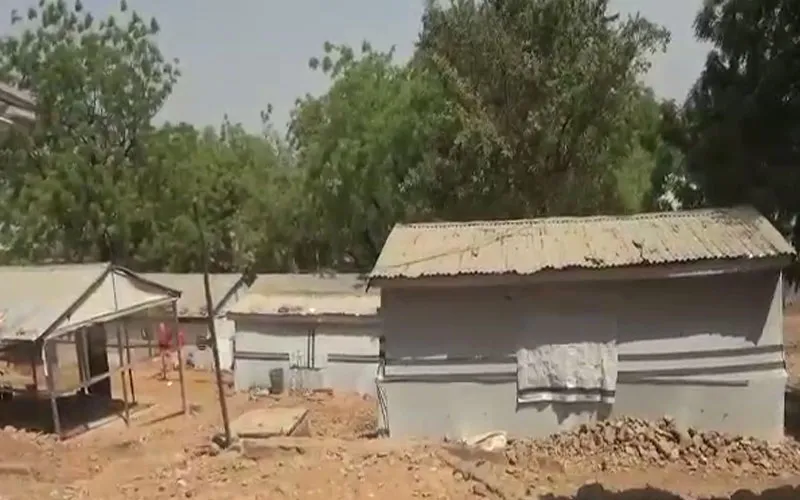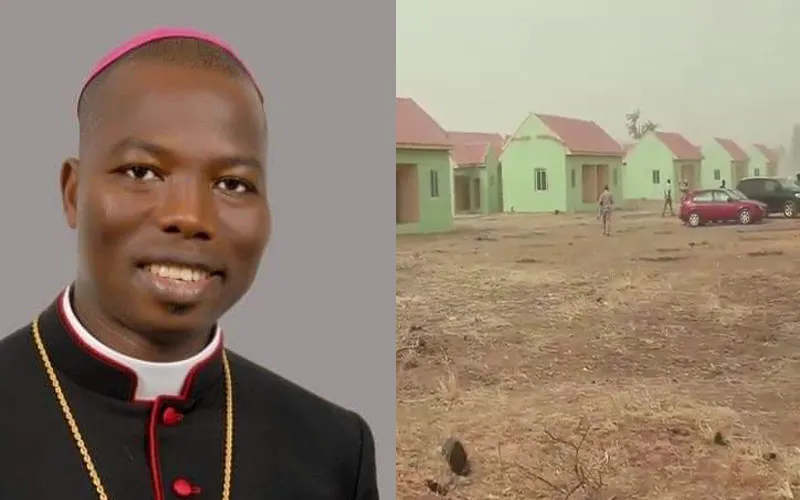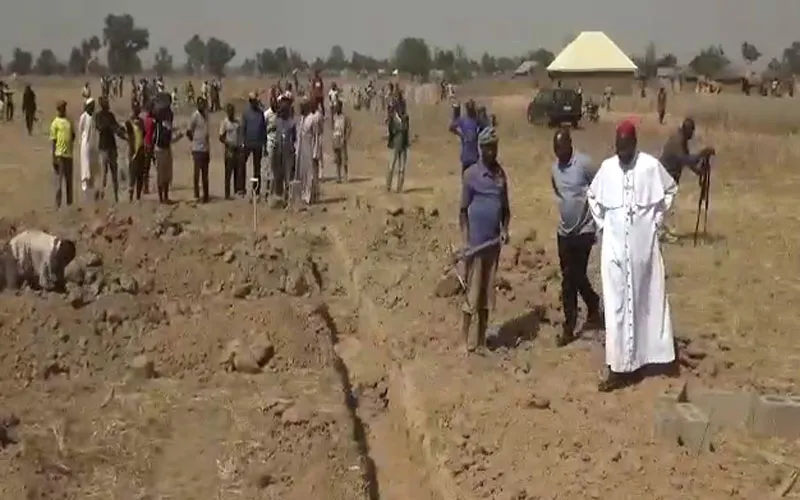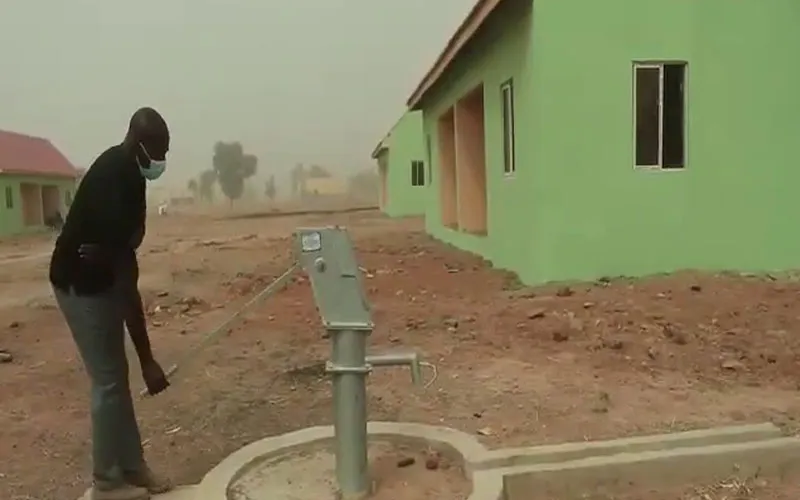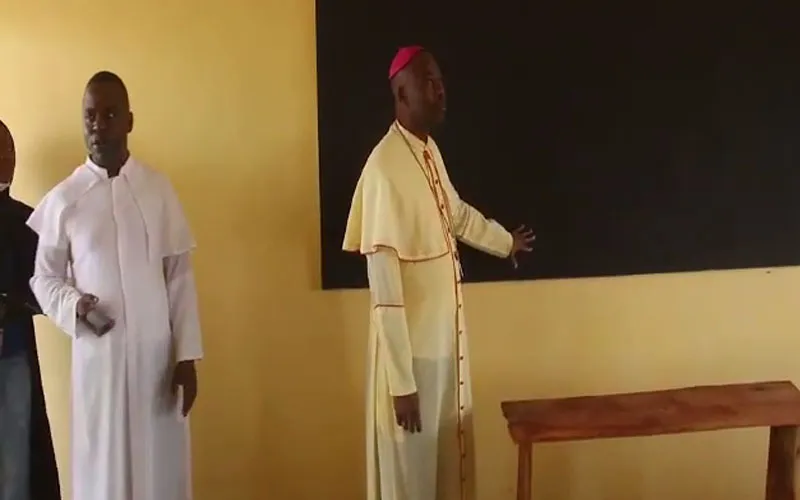
“I started thinking about the possibility of getting funding to resettle our IDPs and presented the idea to Missio Germany, our main funding organization who gave us all the funding we needed. The Governor of Adamawa Estate also came in and donated a whole 10 hectares of land for the facility,” Bishop Mamza told ACI Africa February 8.
Today, the Diocese’s housing project comprises 43 apartments, which are divided into two houses each, to accommodate all the 86 families. Each of the houses has several rooms including a parlor, a kitchen, a bathroom and a toilet.
Bishop Mamza says that each apartment is surrounded by enough space to provide room for those willing to expand their houses.
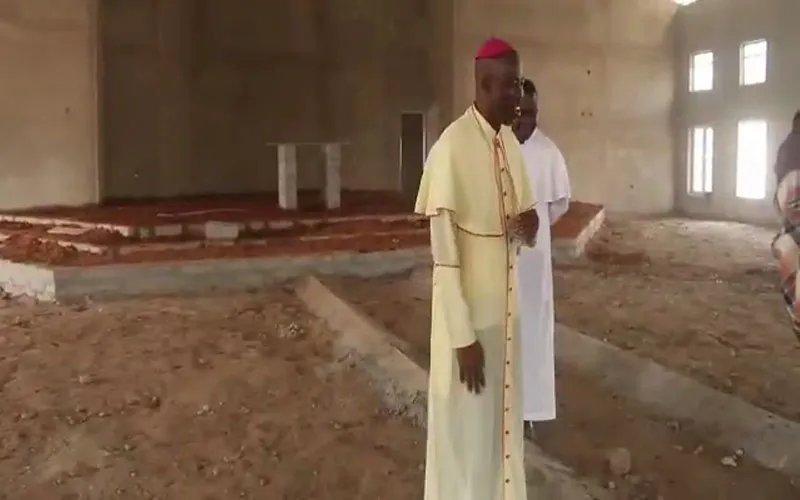
(Story continues below)
Those interested in farming have enough farming land at the housing facility, which sits on the vast and fertile land.
With the support of Missio Germany, the Diocese has also constructed a school that will admit the IDPs’ primary school-going children as well as children in the neighboring villages.
The residence, which is one of its kind in Nigeria, is also complete with a church and a mosque to cater for the spiritual needs of the IDPs.
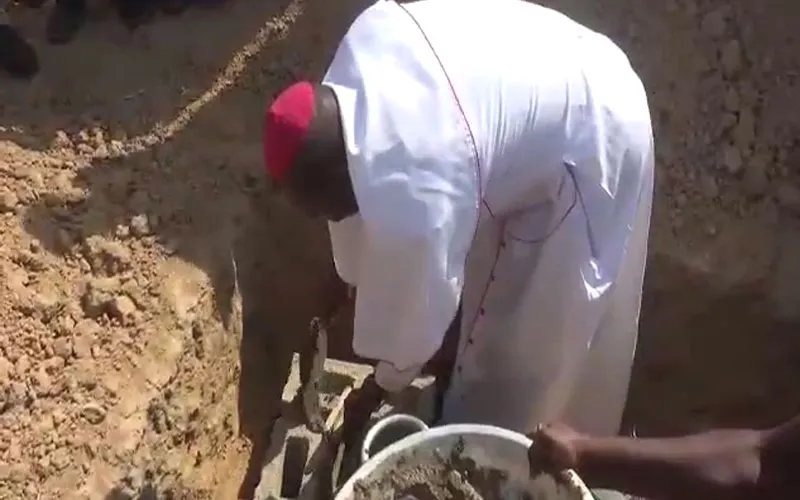
The Nigerian Bishop who has been recognized widely for his peace initiatives in the country that has been riddled with attacks that target Christians told ACI Africa that constructing a Mosque is supposed to foster inter religious unity.
“For years, we have hosted many IDPs, Christians and Muslims alike. We are constructing a Mosque that will allow our Muslim brothers to have a place they can worship comfortably,” Bishop Mamza told ACI Africa February 8, adding that the constructions are set for commissioning on April 12.
Commenting on the challenge of resettling people who are internally displaced by Boko Haram, the Local Ordinary of Yola said, “Boko Haram is still a big problem in Nigeria and there are many places that are still under their control. Our region is better in terms of security since only a few villages still have the militants occupying them.”
Agnes Aineah is a Kenyan journalist with a background in digital and newspaper reporting. She holds a Master of Arts in Digital Journalism from the Aga Khan University, Graduate School of Media and Communications and a Bachelor's Degree in Linguistics, Media and Communications from Kenya's Moi University. Agnes currently serves as a journalist for ACI Africa.
